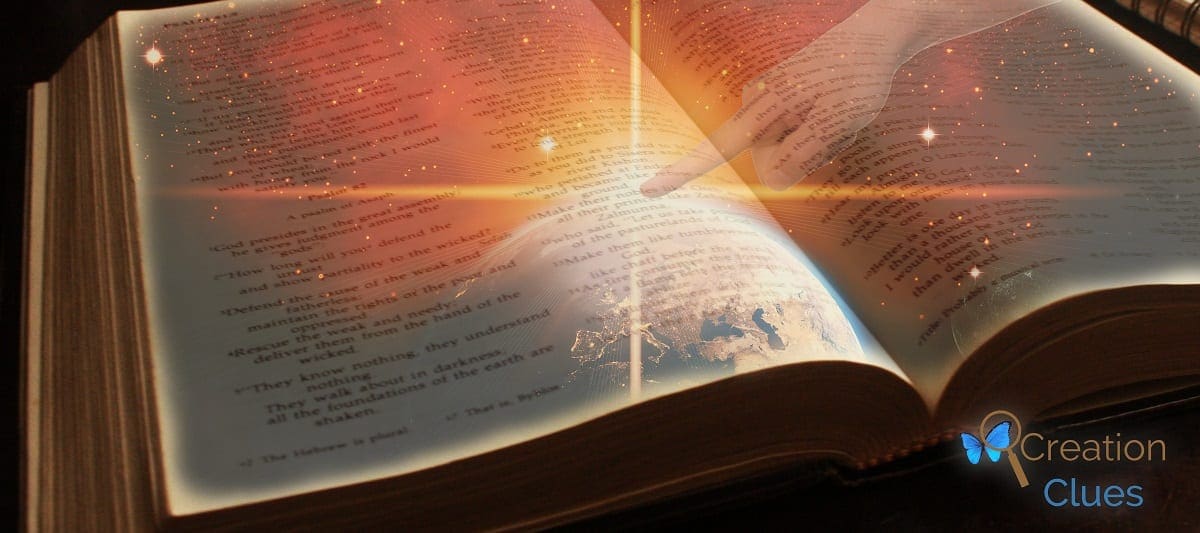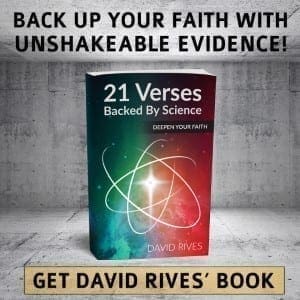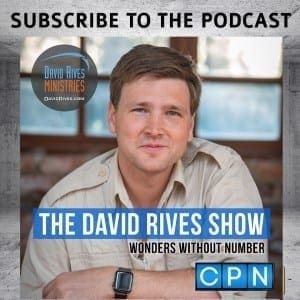Did God use evolution to create everything? Is there space for millions of years between the first two verses in Genesis? Is the creation account in Genesis literal or just a moral story? These are just a few of the common questions that people ask about the creation account in Genesis.

Most Christians, especially kids who grew up in church, have heard the story of creation in Genesis. God made all things in six days, then Adam and Eve sinned, bringing thorns and death into the world. But, when confronted with the ideas of evolution and an old earth in school, people wonder which is right – the Bible or science class? Or are they both true?
Last week, we covered a few common questions about the reliability of the Bible. We also looked at what the whole origins debate is all about – history. You can read that article by clicking on the title, “What’s Your Origin? Creation Basics 1”. With no further ado, let’s dig into this week’s most common questions about the creation account in Genesis!
Is there a gap between Genesis 1:1 and 1:2?
“(1) In the beginning God created the heaven and the earth. (2) And the earth was without form, and void; and darkness was upon the face of the deep. And the Spirit of God moved upon the face of the waters.” Genesis 1:1-2
 We could easily spend all day on this one, picking apart the original language, but let’s just hit some highlights. First, as adults we tend to over-complicate things. Give this passage to a kid who has absolutely no pre-conceived ideas about the age of the earth. It would probably never occur to the kid on their own that there are millions of years, the fall of Satan, and “Lucifer’s Flood” like many claim. With a plain, straightforward reading of the text, it simply looks like verse one is an introduction followed by a detailed explanation of how God created. As Christians, the unchanging Word of God should be our ultimate standard, not cultural whims.
We could easily spend all day on this one, picking apart the original language, but let’s just hit some highlights. First, as adults we tend to over-complicate things. Give this passage to a kid who has absolutely no pre-conceived ideas about the age of the earth. It would probably never occur to the kid on their own that there are millions of years, the fall of Satan, and “Lucifer’s Flood” like many claim. With a plain, straightforward reading of the text, it simply looks like verse one is an introduction followed by a detailed explanation of how God created. As Christians, the unchanging Word of God should be our ultimate standard, not cultural whims.
In the Hebrew, there are a few main words that will help us interpret the text. Some people think this means God created the earth, then it became a bad wasteland “tohu”, ruled by Satan. But, when we see “tohu” and “bohu” together elsewhere in the Old Testament, it means formless and empty. It’s not inherently bad. It just means that God wasn’t finished making it. Another very important thing is the “and”, “waw” in the original language, that clearly links the first second verse directly to the first one. This “waw” shows that verse two simply goes on to describe how God created. Describing the soon-to-be earth as formless and empty is a great way to start. The following verses explain how God formed the earth and how He filled it. There’s a lot more to this, but let’s move on today.
Are the days of creation literal, 24-hour days, or just periods of time?
Some people think that the “days” of Genesis are figurative areas of time. But, linguistically, how do we know if it’s a real, historical date? If day comes with a time of day or a number, that means it’s a real 24-hour day. Isn’t it amazing how clear God made this in His Word? Every “day” comes with two times of day, “evening” and “morning” and a number “fifth”. This pretty clearly indicates regular, historical days.
“And the evening and the morning were the fifth day” – Genesis 1:23
Is Genesis literal history or just a figurative moral story?
The whole book of Genesis, from creation to Abraham and Joseph, is all written in the style of a historical narrative. It’s not like a proverb, and not like a psalm. Each of the people, Adam, Eve, Noah, Abraham, and Joseph are all portrayed as historical characters, not a vague story.
Are there gaps in the Biblical genealogies?
How can we figure out the age of the earth from the Bible? Well, all the genealogies, listing those difficult to pronounce names, give relative ages of people. If you want to try to figure out the numbers yourself, click here to read an article on how to do that. There really can’t be any gaps for long ages between generations because the genealogies say the age of the first person when the following person was born. For example – Adam was 130 years old when Seth was born, and Lamech was 182 when Noah was born.
Did God use evolution to create everything?
The Genesis creation account of the six days of Genesis clearly shows the order God used to create. Much of this order contradicts the order of evolution. For example, God created the sun, moon, and stars after He created dry ground on earth with growing plants. Whales were created with other sea creatures before any land animals which also goes against evolution. To top it all off, birds were created a day before dinosaurs (dinosaurs are land animals – we will go over dinosaurs separately later).
Most importantly, evolution requires a lot of animal death. Survival of the fittest really means death of the less-fit. Genesis and the rest of the Bible makes it clear that death of animals and people only came because of sin, not before it. Sin is the reason why animals died as sacrifices throughout the Old Testament. This is also why Jesus came and died on the cross – to save us from our sins that bring both literal and spiritual death. Dear friend, pain, suffering, and death were not at all part of what God called “very good” at the end of creation week. He doesn’t call your suffering and pain good either – He knows it is bad and hurts when you hurt. When He returns and makes a new creation, there will be no more pain, death, or tears. It will be very good, just like His original creation.

Can a person be saved if he or she believes in evolution or an old earth?
Question – what do you have to do to be saved? Look it up yourself. Basically, you have to repent of sin and believe in Jesus. Believing in a young earth and no evolution is not essential for salvation. But, it is essential for being logically consistent with your beliefs. People are watching to see if you really believe what you say you believe. Young people have lots of questions about evolution and the age of the earth, and a compromised answer isn’t very convincing. People need to know that the Bible can be trusted from the very first verse. Next week we will talk more specifically about a young earth, geology, and the global flood.
©2018, Sara J. Mikkelson
For Further Study:
Helpful Links:
https://thecreationclub.com/the-bible-and-the-age-of-the-earth-part-i/
https://thecreationclub.com/the-bible-and-the-age-of-the-earth-part-ii/
https://thecreationclub.com/popular-compromises-of-creation-the-gap-theory/
https://thecreationclub.com/does-the-bible-really-present-a-six-millennia-old-earth-dr-jack-l-burton/
Books:
- Guide to Creation Basics. Institute for Creation Research
- Creation Basics & Beyond. Institute for Creation Research
- The New Answers Book, Volumes 1, 2, 3 & 4. Answers in Genesis. Master Books. New Leaf Publishing Group.
- Fields, Weston. Unformed and Unfilled: A Critique of the Gap Theory. Master Books. New Leaf Publishing Group
- Sarfati, Jonathan. Refuting Compromise. Creation Ministries International








Sara, another good one here, focusing on the linguitics of the Gap Theory, is https://thecreationclub.com/is-the-gap-theory-linguistically-viable/. All the articles are good, but I thought “IS THE GAP THEORY LINGUISTICALLY VIABLE?” really aced it!
Thanks Tom! You’re absolutely right . . . how could I forget about that one? I shared it with someone on social media who was asking questions about gap theory just two weeks ago. It’s very good and thorough!